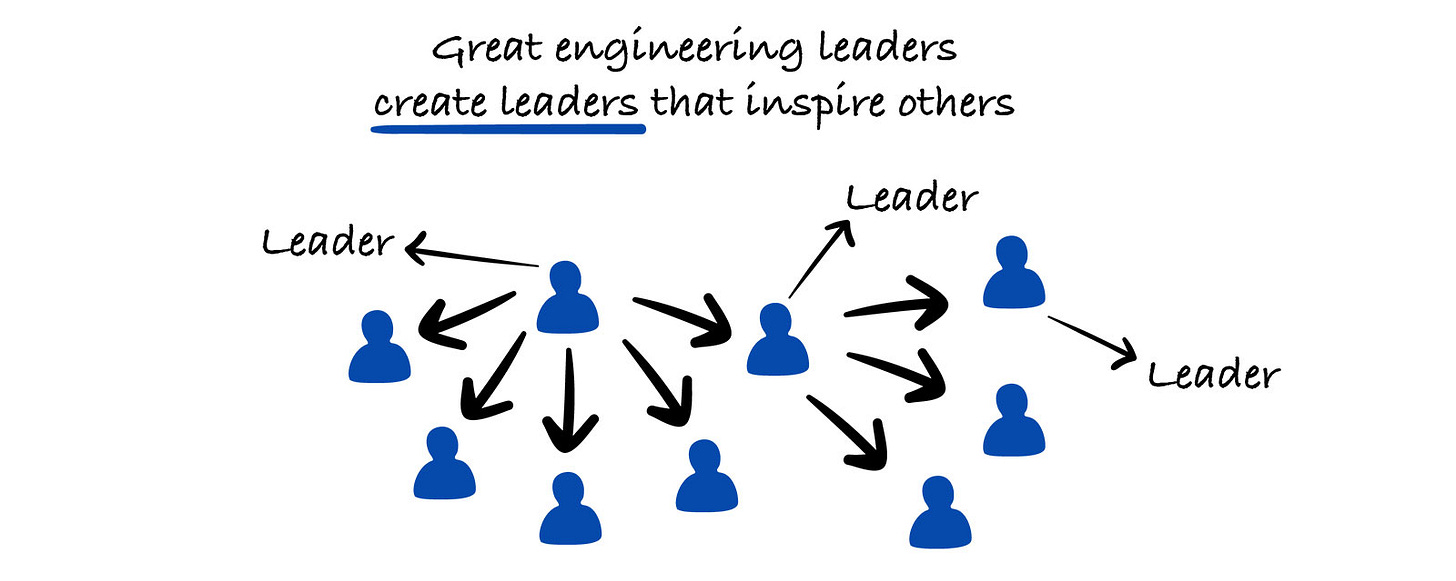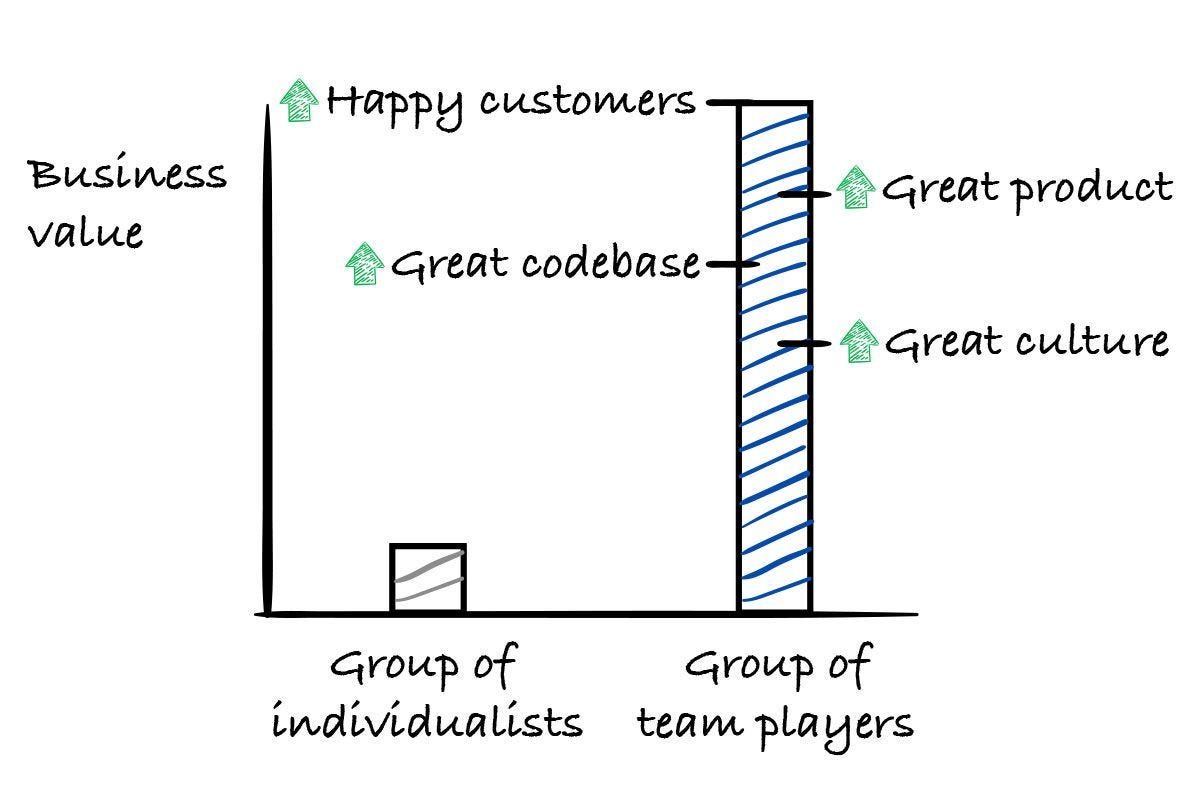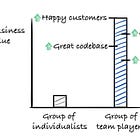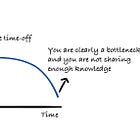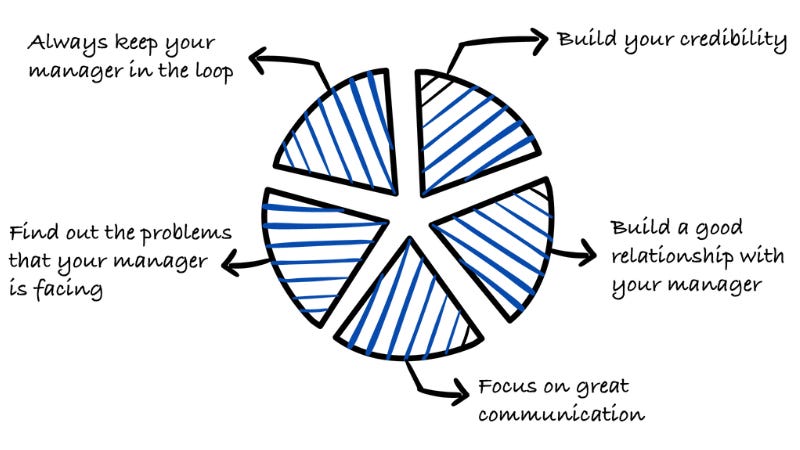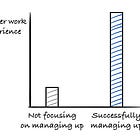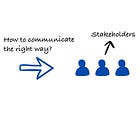Become an Engineering Leader Everyone Wants to Work With
🎁 Infographic: 8 Signs That You Have a Good Manager included!
Intro
Today, together with David Weiss, Lead Software Engineer and Author of Besides Code newsletter, we hosted a lightning lesson in collaboration with Maven.
If you missed it, no worries! You can find the recording of the session here. The session starts at 7:05, so make sure to skip ahead to that point.
It was scheduled to be a 30-minute session, but the time passed so quickly that we made it an hour-long session!
During the session, we shared our personal experiences from growing as engineers and engineering leaders, both the good parts and also the parts that are not so widely spoken about.
We also talked about 6 key traits that make an engineering leader someone everyone wants to work with and in this article, we are sharing a recap of the session!
This is an article for paid subscribers, and here is the full index:
- I Used to Believe That as a Leader You Need to Know Everything
- 6 Traits of an Engineering Leader Everyone Wants to Work With
- 1. They Are Team Players
- 2. They Know How to Manage Up, Down, and Sideways the Right Way
- 3. They Create a Positive Work Environment
🔒 4. They Don’t Blame; Rather, They Collectively Look to Improve Things
🔒 5. They Coach and Mentor Teammates
🔒 6. They Empower and Uplift the Team
🔒 🎁 Infographic: 8 Signs That You Have a Good Manager
🔒 Last words
Let’s get straight into it!
I Used to Believe That as a Leader, You Need to Know Everything
When I first grew from Senior Software Engineer to Team Lead, leading a team of 5, I tried to take on the hardest tasks, finish the most tasks, have everything under control and also work on the weekends.
The team felt like I was trying to do everything myself and that I was not trusting anyone around me.
Well, that got me quite close to burning out and I was forced to make a change. I made a deliberate change to start delegating more and empowering and trusting my team. Things turned out to be a lot better after.
As a leader, you are not judged by your individual contribution anymore, but you are judged by the success of your team and projects.
So, making others around you better is what is important the most.
This is one of the most important things to remember when you are an engineering leader. Now, let’s go to specific traits.
6 Traits of an Engineering Leader Everyone Wants to Work With
This is a topic that we could talk about for hours, as many traits and nuances make a great engineering leader.
With David, we decided that both of us will share 3 traits of an engineering leader that everyone wants to work with. David started with the first one and then I continued with the second one and so on.
Let’s go to the first one!
1. They Are Team Players
It’s really important to make that mindset shift as an engineering leader and transform the way you think. It should be a lot less “I” (I did this) and a lot more towards “we” (we as a team did this).
In Software Development, it’s really all about the team. The projects we are working on, the goals that we're trying to achieve. And one of the best ways you can be a team player is to put your team's success first.
Take a step back from your usual individual work and look at the bigger picture. Ask yourself: What can I do today to help my team?
Is someone stuck and needs help?
Could a quick meeting help solve a problem?
Is a senior leader asking for something important?
Focus on unblocking your teammates and supporting the team as a whole.
Make it a habit to regularly check in with your teammates.
That could be through 1:1s or a quick chat at the start of a meeting. See how they’re doing → both with their work and personally.
Did someone just come back from a trip? Ask about it. On Monday mornings, ask how their weekend was. These small moments of connection go a long way in building trust and supporting your team.
When your teammates feel supported, the whole team performs better.
It’s really important to learn and grow together as a team.
You want to avoid knowledge silos → where only one person knows how to do something and no one else does.
As a leader, create opportunities for knowledge sharing. Use meetings, Slack, or Teams channels to encourage people to share what they’ve learned.
If someone discovers a new feature in a library or framework, have them explain it briefly and share a code snippet. That way, everyone benefits, and the whole team gets stronger together.
More articles to learn from:
2. They Know How to Manage Up, Down, and Sideways the Right Way
In order to be considered a great engineering leader to work with, it’s important that you learn how to manage up (your manager, leadership, stakeholders), down (your team) and also your peers.
If you mishandle one part and don’t build a decent working relationship, the other parts may suffer.
A mistake that I made when I first became a Team Lead and also later when I grew to become an Engineering Manager was that I was shielding my team too much and trying to sugarcoat things, while in reality we were having bigger issues.
Instead, I should involve the team earlier and look to collectively address things and not try to solve the bigger issues on my own.
I also made a lot of other mistakes, like sending an email of potential improvements to my skip-level manager, while not trusting my manager to handle these improvements.
And also expecting my new manager to change their working style, because I was used to the working style of my previous manager. Which really doesn’t work if you do that. You just make your working relationship worse.
So, what to do? My top 3 tips here are:
Building good relationships and good communication is key
Try to proactively find out the problems that people around you are facing and put in the effort to resolve them
Make sure to be transparent, give feedback and ask for help when you need it
Other articles to learn from:
3. They Create a Positive Work Environment
Looking back on my nearly 20-year career in tech, I’ve worked with some truly great managers and leaders. One thing they all had in common?
They stayed away from gossip and drama.
No matter the size of the company, it's pretty normal for gossip to come up, but strong leaders choose not to engage in it. They stay focused on the work, their people, and creating a positive team environment.
Another thing I strongly believe in is celebrating small wins.
Managers often give praise when a project is finished, but what if that project takes months or a full quarter? That’s a long time without positive feedback.
So it’s important to recognize the small wins along the way:
Say “great job” on a task or ticket
Leave positive feedback on a code review
Share an encouraging message at the start or end of a meeting
These small gestures show your team that you’re paying attention and that you value their work.
Also, look for everyday ways to spread positivity. Show up to meetings with your camera on (if you're comfortable), smile, ask how people are doing, or how their weekend or PTO was.
These small moments build connection and boost team morale.





